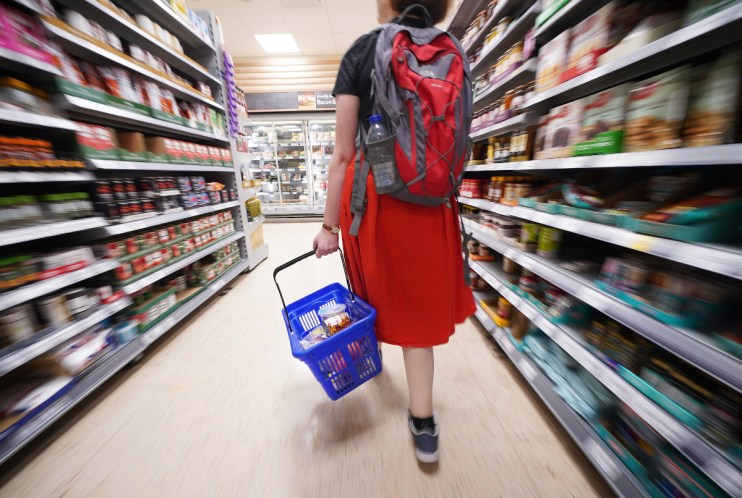Inflation: Shop price hikes slow again in good news for Sunak and Tories

Shoppers have benefited from retailers cutting prices to reignite consumer demand, according to new figures, in a further sign of inflation cooling.
The rate at which shop prices rise has fallen back in line with “normal levels” over the four weeks to May, a study by the British Retail Consortium (BRC) has found.
Shop price annual inflation eased to 0.6 per cent in May, down from 0.8 per cent in April.
BRC said this is below the three month average rate of 0.9 per cent and annual growth is its lowest since November 2021.
Food inflation decelerated to 3.2 per cent in May, down from 3.4 per cent in April.
This is below the three-month average rate of 3.5 per cent and is the thirteenth consecutive deceleration in the food category.
The news will be welcomed by Rishi Sunak, who has made inflation a key part of his election strategy.
Helen Dickinson, chief executive of the British Retail Consortium, said: “Shop price inflation has returned to normal levels, at just 0.6 per cent.
“This was helped by slowing food inflation, with fresh food inflation falling to its lowest level since November 2021. “
She added: “In non-food, retailers cut furniture prices in an attempt to revive subdued consumer demand for big-ticket items, and football fans have been able to grab some bargains on TVs and other audio-visual equipment ahead of this summer’s Euros.”
Last week, it was reported that consumer price index inflation slowed to its lowest level in nearly three years in April, sitting at 2.3 per cent.
The figure is close to the Bank of England’s target figure of two per cent, but ahead of economists expectations of 2.1 per cent.
Mike Watkins, head of retailer and business insight, NielsenIQ, said: “After a number of months of falling input prices, we are now seeing food inflation stabilise and retailers continue to pass on price cuts to shoppers.
“Across the industry whilst inflationary pressure has eased and there is some improvement in shopper sentiment, the unseasonable weather has dampened retail sales so lower prices look set to continue and promotional activity is likely to increase drive demand.”
Retailers have gotten increasingly competitive on pricing to attract customers during a period of economic hardship.
Supermarkets such as Asda have announced price matching schemes to lure shoppers back from ultra-cheap German discounters.
But shoppers are still cautious about spending.
According to the Office for National Statistics (ONS), retail sales fell 2.3 per cent in April, a much worse fall than predicted by economists.
Most forecasters only expected a 0.2 per cent fall. March’s figures were also revised down from showing no growth to a 0.2 per cent fall.
Non-food stores sales suffered particularly badly, dropping 4.1 per cent in April. This was the joint largest fall since January 2021.